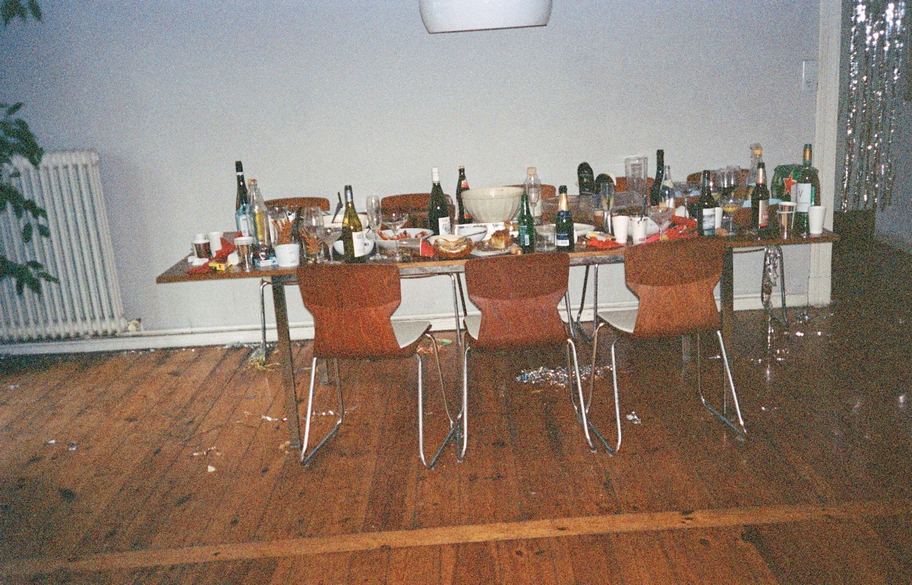USA, Music & Sound, 2024, in Berlin
Susie
Ibarra

Any portrait of the composer, percussionist, and sound artist Susie Ibarra would look like an ever-changing mandala. Meditating on one aspect of her expansive work leads to other musical pathways and across disciplines, stretching from the studio to the stage, from the field to the classroom to the art gallery. And where to begin this palm-sized portrait? Perhaps with a dream: when Susie was a child she dreamed of being a fish. Is this why water resides at the center of her mandala? The glacial meltwater and rivers of the Greenland Ice Sheet and Himalayas she breathes in her sonic art installation with the geographer Michelle Koppes.
In her new book Rhythm in Nature, Ibarra shares her own biography of place in relation to bodies of water: “I was born next to the North American U.S. Pacific Ocean, spent my childhood by the Gulf of Mexico, and moved near to the North American Atlantic Ocean. I spent a decade as an adult returning to my homeland by the Philippine Pacific Ocean, South China Sea, Sulu, and Celebes Seas. I later moved inland along rivers from the Northeast U.S. in New York State, Hudson and Wallkill Rivers, to currently the German rivers of the southern Rhine, Neckar, and along the northern Spree, south of the Baltic Sea.”
Between those oceans and rivers you can trace her life in music. I first saw Ibarra play with William Parker and others at the downtown New York free-jazz venue Tonic in the late 1990s (Ibarra: “True ‘freedom’ can only come from discipline”). The waters flow deep through her 40-plus recordings to date, beginning in 1995 with Parker Little Huey album to her latest 2024 release Insectum, a collaboration with various arthropods, entomologists, and the musicians Graham Reynolds and Jeffrey Zeigler. The list of musicians she has recorded with reads like a Who’s Who of the era’s avant-garde New York music scene and include a truly impressive list of top-shelf albums, like Matthew Shipp’s Multiplication Table, David Ware’s Godspelized; her Songbird Suite and Folkloriko with Craig Taborn, Jennifer Choi, and guest Wadada Leo Smith; Entomological Reflections with Sylvie Courvoisier and Ikue Mori as the trio Mephista; Perception and Walking on Water with her sextet Dreamtime Ensemble; Talking Gong with her current ensemble with Claire Chase and Alex Peh; and her upcoming album with Daniel Doña and Arneis String Quartet playing her Parallels and Confluence—a piano quintet composed as a love song, a kundiman about two rivers in the Philippines.
Ibarra’s work has continued to expand into other realms of listening and collaboration, and a deeper engagement with what Sala Elise Patterson describes as “physical movement, our effect on the natural environment, the energy of architectured spaces and cities, and the cultural and ritual memory of a people.” She has made field and film recordings of the Maguindanaon kulingtan music of Mindanao, Philippines, and the traditional musicians of the Draa Valley, Morocco. Her recent composition Sky Islands is inspired by the mountain rainforests of Luzon and will be premiered at the Asia Society, where she is also creating Floating Gardens, a sonic sculpture connects underwater pond sounds with gong elements and live signals from the Philippines.
From 2012 to 2020 Ibarra taught in the music department at Bennington College, where her former teacher Milford Graves taught for 39 years. She has performed all over the world, at two Summer Olympics and from Queen Elizabeth Hall to Carnegie Hall, and at many museums, including, most recently, Dia: Beacon, where we composed a poetry and sound score In Light of Water, Birds Take Flight that we performed with a participatory orchestra. Ibarra has created apps of sound-map walks of the Medina of Fez, New York City, Pittsburgh, and Harvard; she has composed pieces for 80 percussionists and 150 mandolinists. Highlights of her awards and honors include a TED Senior fellowship, a 2022 Foundation for Contemporary Arts Fellowship, and the 2024 Charles Ives Award for composition from the Academy of Arts and Letters. Ibarra is a Yamaha, Zildjian, and Vic Firth Drum Artist. What Thomas Cooper once wrote about the films of Robert Gardner in his book Natural Rhythms can be said of Ibarra’s music, immersed in “seasonal rhythms, innate cycles, and native patterns.”
Text: Jeffrey Yang



